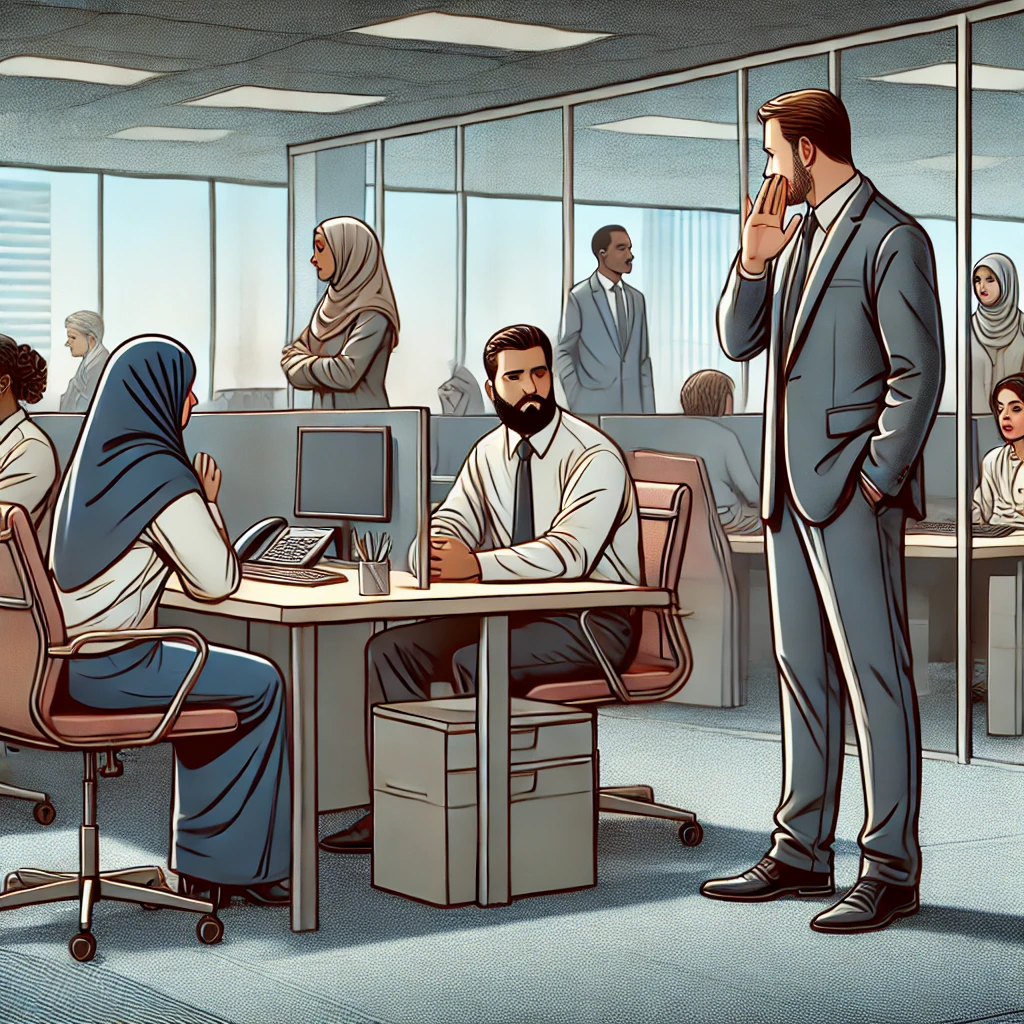In Hyderabad, alarming reports have surfaced of Muslim employees being unfairly targeted in the workplace. Many have faced harassment, silencing, and sudden terminations due to their religious identity. Despite legal safeguards, these workers struggle to find recourse, raising concerns about systemic discrimination within the corporate sector.
Behind the gleaming office towers and tech parks of Hyderabad, a disturbing reality is unfolding. A growing number of reports suggest that some corporate companies are creating a hostile environment for Muslim employees, leaving them marginalized, discriminated against, and, in many cases, forced out of their jobs. Even more concerning are allegations that those who dare to stand up against this bias are being targeted with false cases, leading to unjust terminations.
Discrimination in the Workplace: A Growing Concern in Hyderabad
Hyderabad, one of India’s top corporate hubs, is increasingly grappling with workplace discrimination, especially driven by communal biases. In many companies, Muslim employees are being sidelined, excluded from key discussions, and passed over for promotions, creating a challenging environment where survival in the workplace seems nearly impossible.
Sameer Ahmed (name changed), an employee at a prominent tech firm, shares: “I worked at the company for years, yet I was constantly overlooked for promotions. What began as subtle exclusion eventually turned into direct comments about my faith. When I raised the issue, HR dismissed it as just ‘office politics.’” Unfortunately, Sameer’s experience is becoming more common, with many employees reporting communal slurs, exclusion from decision-making, and microaggressions. Those who speak up face severe consequences.
Retaliation Through False Allegations
A disturbing trend is emerging where Muslim employees, after raising concerns about discrimination, are met with fabricated allegations. These false accusations can range from minor performance issues to more serious claims like misconduct or data theft.
Zainab Khan, a former IT employee, recounts, “After I voiced concerns about discriminatory remarks, I was suddenly accused of mishandling confidential data. I had a perfect track record, but after speaking up, I received a termination letter without any proper investigation.” This retaliation through false allegations is becoming disturbingly common, with employees being dismissed based on trumped-up charges.
The Role of HR: Protectors or Perpetrators?
Many employees initially seek help from Human Resources (HR) to address workplace discrimination. However, in numerous cases, HR departments have been accused of being complicit in the discrimination, rather than investigating complaints. Abdullah, another employee, explains, “I went to HR expecting mediation, but instead, they started an inquiry into my performance. Even though my performance was strong, they manufactured reasons to justify my firing.” HR’s failure to intervene and address discrimination highlights a significant issue within these organizations.
Legal Challenges: Fighting for Justice
Despite the protection offered by Indian labor laws against workplace discrimination and wrongful termination, employees find it difficult to fight back. The legal process is slow, and companies often use their financial resources to prolong cases, making it hard for employees to seek justice.
Mohammed Rasheed, a lawyer, states, “Companies are using their financial clout to exhaust employees in long legal battles. It’s not just about winning—it’s about wearing employees down until they settle or give up.” Many employees fear retaliation or being restricted from future job opportunities, which discourages them from pursuing legal action.
The Need for Accountability and Change
As Hyderabad grows as a global IT and corporate hub, the demand for fair and inclusive workplaces has never been greater. Discrimination based on religion or community not only harms individuals but also stifles innovation and diversity. Activists and employee rights groups are calling for stronger enforcement of anti-discrimination laws and more accountability from companies engaging in biased practices.
Faiza Qureshi, a labor rights advocate, stresses, “Companies must take responsibility for the discrimination happening within their walls. If Hyderabad wants to maintain its status as a global corporate city, it must ensure all employees are treated fairly.” The rise in communal discrimination within Hyderabad’s corporate sector is alarming. To create meaningful change, businesses, the government, and society must act collectively to ensure employees are judged by their skills and contributions, not their religious identity.
The fight for equality and justice in the workplace must continue, and it is crucial for companies to address these issues to build a truly inclusive and diverse workforce. #hydkhabar

